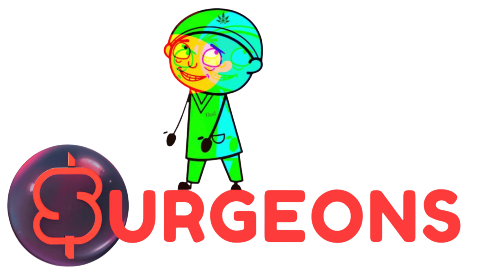Surgeons Online Cannabinoid Academy
CBD Side Effects: Understanding Dry Mouth and Other Common Reactions
Introduction
CBD, or cannabidiol, is widely recognized for its therapeutic potential and generally mild side effects. While many users report positive experiences with minimal adverse reactions, understanding the potential side effects is essential for safe and effective use. By being aware of these side effects, such as dry mouth and occasional changes in appetite, users can approach CBD use responsibly and make adjustments to enhance their experience. For those new to CBD, starting with small doses and observing how the body responds is a key step in integrating CBD into a wellness routine.
Common Side Effects of CBD
CBD’s side effects are typically mild, with some of the most frequently reported ones being dry mouth, fatigue, and slight changes in appetite. These effects are generally linked to how CBD interacts with receptors in the body’s endocannabinoid system (ECS), which helps regulate essential functions like mood, sleep, and appetite. For instance, CBD may reduce saliva production temporarily, causing dry mouth. Fatigue is another common side effect, especially at higher doses, as CBD’s calming effects can sometimes make users feel drowsy. Appetite changes are less common but can occur due to CBD’s impact on the ECS.
Dry Mouth: Causes and Remedies
One of the most common side effects of CBD is dry mouth, which occurs because CBD can affect saliva production by interacting with ECS receptors in the salivary glands. This temporary decrease in saliva can cause discomfort, especially with regular or high doses of CBD. To manage dry mouth, users can increase their water intake, chew sugar-free gum to stimulate saliva, or use oral hydration sprays. While dry mouth is generally mild, it’s useful to have remedies on hand, especially if CBD is part of a daily routine.
Other Common Reactions to CBD
Beyond dry mouth, other common reactions to CBD include dizziness, nausea, and drowsiness, which may vary depending on individual tolerance and dosage. Dizziness is often reported at higher doses, particularly for new users who haven’t yet adjusted to CBD. Nausea is typically rare but can occur if CBD is taken on an empty stomach. Drowsiness is another reaction that can be useful for those using CBD for sleep support but may be less ideal for daytime use. Adjusting the dosage and timing of CBD can often help minimize these effects.
Factors Affecting CBD Side Effects
The side effects of CBD can vary widely based on factors like dosage, individual body chemistry, and the specific product type. Higher doses tend to increase the likelihood of side effects, which is why it’s often recommended to start with a low dose and gradually increase as needed. Individual body chemistry also plays a role, as everyone’s endocannabinoid system responds differently to cannabinoids. Product type matters as well; for example, CBD edibles may have a delayed onset but longer-lasting effects, which could influence side effects experienced over time.
When to Consult a Healthcare Provider
If side effects from CBD persist or worsen, it may be wise to consult a healthcare provider. Those who are taking other medications or have pre-existing health conditions should especially seek professional advice before starting CBD. Certain medications may interact with CBD, affecting their effectiveness or increasing side effects. A healthcare provider can offer tailored guidance on how to use CBD safely and may suggest alternative options or adjustments based on the individual’s health profile.
Conclusion
While CBD’s side effects are typically mild, understanding and managing them can help users get the most out of their experience. Common side effects like dry mouth, dizziness, and fatigue are manageable, and starting with a low dose can reduce their occurrence. Consulting a healthcare provider is essential, especially if other medications are involved, to ensure safe and effective use of CBD as part of a wellness routine.

The Relief Stick
Pair text with an image to focus on a product, collection or blog post. Add details on availability, style or even provide a review.
Contact Us
Pair text with an image to focus on a product, collection or blog post. Add details on availability, style or even provide a review.

Delta 9 THC Seltzerss
Pair text with an image to focus on a product, collection or blog post. Add details on availability, style or even provide a review.
Reviews
Pair text with an image to focus on a product, collection or blog post. Add details on availability, style or even provide a review.



